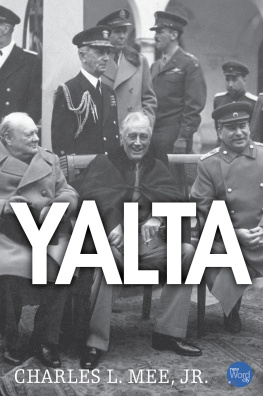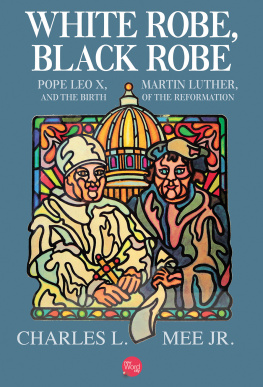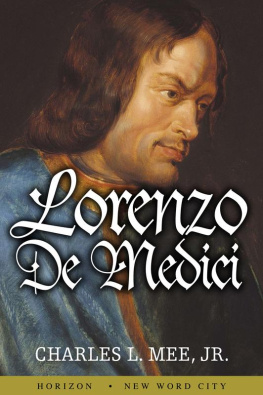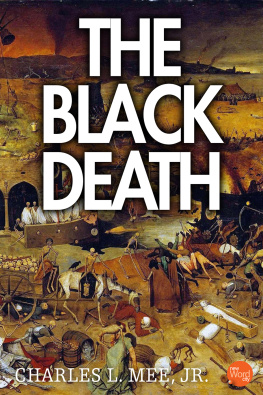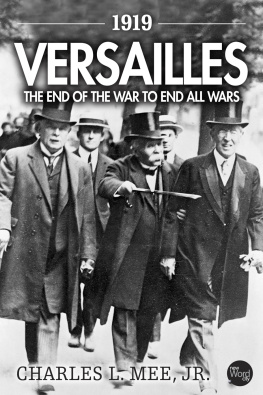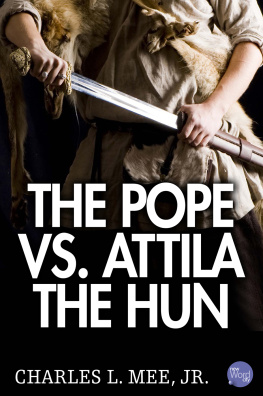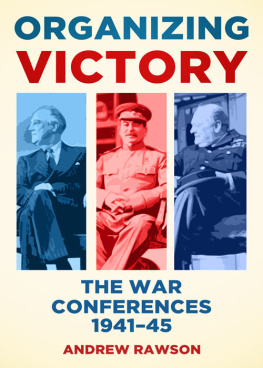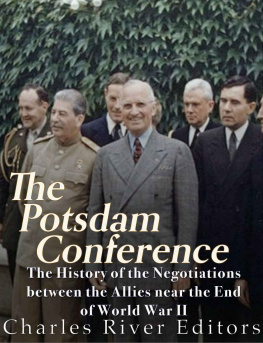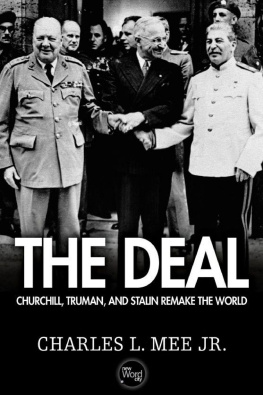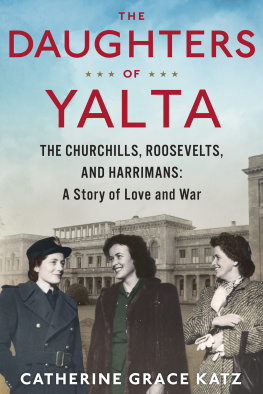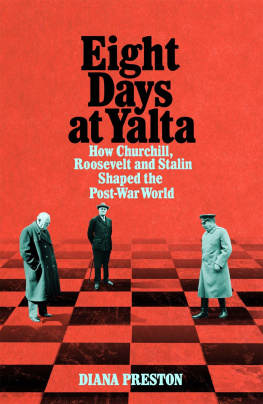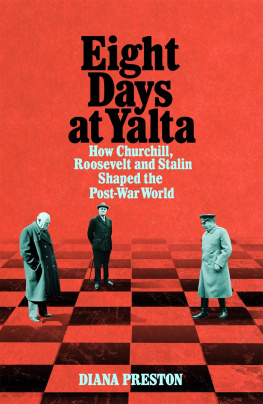Charles L. Mee - Yalta
Here you can read online Charles L. Mee - Yalta full text of the book (entire story) in english for free. Download pdf and epub, get meaning, cover and reviews about this ebook. year: 2014, publisher: New Word City, genre: Politics. Description of the work, (preface) as well as reviews are available. Best literature library LitArk.com created for fans of good reading and offers a wide selection of genres:
Romance novel
Science fiction
Adventure
Detective
Science
History
Home and family
Prose
Art
Politics
Computer
Non-fiction
Religion
Business
Children
Humor
Choose a favorite category and find really read worthwhile books. Enjoy immersion in the world of imagination, feel the emotions of the characters or learn something new for yourself, make an fascinating discovery.
- Book:Yalta
- Author:
- Publisher:New Word City
- Genre:
- Year:2014
- Rating:5 / 5
- Favourites:Add to favourites
- Your mark:
- 100
- 1
- 2
- 3
- 4
- 5
Yalta: summary, description and annotation
We offer to read an annotation, description, summary or preface (depends on what the author of the book "Yalta" wrote himself). If you haven't found the necessary information about the book — write in the comments, we will try to find it.
In diplomatic history, there is perhaps no better example of the rule of unintended consequences than the Yalta Conference. In 1945, Winston Churchill, Franklin Roosevelt, and Joseph Stalin met to ensure victory over Nazi Germany and a peaceable aftermath to World War II. But, as this illuminating short-form book by award-winning author Charles L. Mee, Jr., shows, the results were anything but. Stalin created the conditions that would lead to the Soviet Unions demise. Churchill was presiding over an empire in decline and attached Britain to the fortunes of the United States. Roosevelt, meanwhile, set America and the world on the path to the Cold War.
Yalta — read online for free the complete book (whole text) full work
Below is the text of the book, divided by pages. System saving the place of the last page read, allows you to conveniently read the book "Yalta" online for free, without having to search again every time where you left off. Put a bookmark, and you can go to the page where you finished reading at any time.
Font size:
Interval:
Bookmark:
In our robust moments we welcome the fact that our actions have consequences. We prefer to forget that actions may have unintended consequences that are often vastly more durable and far-reaching than those we intended.
When Christopher Columbus set sail in 1492, he was looking for the spices and the gold of the Orient. He did not intend to lead the way for the conquest of Mexico by Hernando Cortes and his men. Nor, on a less momentous note, did he pay much attention to the abundance of novel foodstuffs to be seen when he finally reached the New World after two months at sea. On October 15, 1492, he wrote in his ships log that he had spotted some green, fertile islands that may contain many things of which I do not know because I do not care to land and explore them, being anxious to find gold. Five hundred years later, nutritionists could not help but notice that the diet of the Mayans corresponded closely to the current recommendations for a heart-healthy diet. The foods of the New World, carried back to the Old, and incorporated into the core diet there, created the modern Mediterranean diet, which is now the world standard for lowering the risk of disease and increase the probability of long life.
When the diplomats at the Paris Peace Conference of 1919 drew up their final treaty to present to the Germans, it was certainly not their intention to assist the rise of a Hitler .
Nor was it the intention of the British Foreign Office to help bring on World War II by dismissing the clandestine efforts of a group of German military officers to enlist foreign assistance in a plot to assassinate Adolf Hitler on the eve of his invasion of Czechoslo vakia .
It was not the intention of the United States government, in opposing the Communist Party in Italy after World War II, to allow the Christian Democracy Party and its leader Prime Minister Giulio Andreotti of Sicily to become so embroiled with the Mafia as to make it nearly impossible afterwards for the Italian government to work itself free of criminal influence.
It cannot have been the conscious intention of Prime Minister Margaret Thatcher and, later, of Prime Minister John Major , by approving the sales of military components by the Matrix Churchill Corporation to Iraq to assist Saddam Hussein , threatening the whole of the Middle East. It was hardly the intention of Mikhail Gorbachev , when he embarked on his reforms in the Soviet Union , to split up Czechoslovakia and Yugoslavia , producing a war in Bosnia-Herzegovina, fueling not only a resurgence of nationalism but also of tribalism. Nor was it his aim to bring about the reunification of Germany, causing a rise in German debt as West Germany absorbed East Germany, leading the Germans to raise their interest rates, thus causing strains within the European community that might destroy it and provoking political analysts to worry again about the German problem. It is hardly likely that all unintended consequences can be anticipated, nor that all would be avoided even if they were anticipated. Had Gorbachev thought these were potential consequences, he might have felt he had little choice but to accept them. But it is certain that history has no end of such consequences, and they can be a plague on the goals of even the wariest of practitioners.
In diplomatic history, perhaps no more awesome example of the rule of unintended consequences might be found than the meeting in 1945 of President Franklin Roosevelt , Prime Minister Winston Churchill , and Generalissimo Joseph Stalin at Yalta , where they gathered to ensure for each one of their countries the rewards of their victory over Germany and the other Axis powers , and the peace in which to enjoy them.
The military situation was considerably improved, said Roosevelt, since they had last met .
This was certainly true, and... the Soviet armies were moving very successfully onto the line of the Oder River in Germany, Stalin replied.
On his way to Yalta, said Roosevelt, he had made a number of bets on board the cruiser... whether the Russians would get to Berlin before the Americans would get to Manila.
Roosevelt, age sixty-three, looked tired, worse than tired. He was thin and drawn and ill. Stalin, three years Roosevelts senior, had held up better under the relentless strain of war, though he, too, looked gray.
It was four in the afternoon, February 4, 1945. The first formal plenary session of the conference of the Big Three was scheduled to begin in an hour, and Stalin, as host, had come to pay an informal call on the president in his quarters. Charles E. Bohlen was making notes as he translated for Roosevelt. The two leaders had greeted each other, according to Bohlen, as old friends, as in a sense they were, having gone through the war together as allies, meeting from time to time to consult on common strategy, and meeting now to make plans for the end of the war, and the aftermath. Roosevelt, however tired, had taken Stalins hand and greeted him warmly. Stalin, noted Bohlen, his face cracked into one of his rare, if slight, smiles, expressed pleasure at seeing the president again.
Roosevelt and his entourage had been put up in the Livadia Palace , an imposing, white limestone structure, formerly a summer palace of Nicholas II , Russias last czar. It was set high on a mountain slope overlooking the resort area of Yalta . Roosevelt had been given a suite, looking out over the Black Sea - a living room, dining room (formerly the czars billiard room), bedroom, and a private bath - and the rest of his party were spread out among the other forty-five or so rooms, more or less disconsolate at having to share the few other bathrooms.
Yalta is set on the southern edge of the Crimean peninsula . Leo Tolstoy summered there, as had Anton Chekhov and Maxim Gorky , along with actors and opera singers and many of the Russian nobility. It has a dry, sunny climate, breezy in the summer, crisp but not cold in the winter. It was in the forties just then, with blue skies and a warm sun. Long-needle pine forests covered the mountains above the coast. Where the forests give way to parks and gardens are cedars, tall plane trees, cypresses, magnolias, olive trees, and wisteria. Many of the houses had tiled roofs, which gave the town a Mediterranean cast.
Stalin and his aides and ministers were settled six miles away in a palace that had once belonged to Felix Yusupov , the Russian prince best known as one of Grigori Rasputin s assassins. The British were several miles further, in a large villa that had been designed in the mid-1800s by an English architect. The villa looked a mixture of Scottish and Moorish, with gardens and terraces overlooking the Black Sea, just two bathrooms, and, as Churchill was the first to discover, bedbugs.
Its a big house, Britains Undersecretary of State Alexander Cadogan wrote his wife, of indescribable ugliness... with all the furnishings of an almost terrifying hideosity. But the British thought the Russians were doing their best to make everyone comfortable, despite wartime shortages and the fact that the German army had recently gone through the Crimea, stripping summer palaces of plumbing fixtures, locks, doorknobs, and whatever else they could remove. Nearly everything had been brought down from several of Moscows best hotels and hurriedly installed. The Russians were unfailingly attentive to their guests. When one of the Englishmen made an offhand remark about the lack of lemon twists for his martinis, a potted lemon tree appeared the next day at the British villa.
The conversation shifted from the weather to the natural beauty of the area and the evidence of the Germans recent presence.
The president remarked that he had been very much struck by the extent of German destruction in the Crimea, since he had arrived at Yalta, and therefore he was more bloodthirsty in regard to the Germans than he had been a year ago, and he hoped that Marshal Stalin would again propose a toast [as he had at the Tehe ran Conference ] to the execution of 50,000 officers of the German Army.
Next pageFont size:
Interval:
Bookmark:
Similar books «Yalta»
Look at similar books to Yalta. We have selected literature similar in name and meaning in the hope of providing readers with more options to find new, interesting, not yet read works.
Discussion, reviews of the book Yalta and just readers' own opinions. Leave your comments, write what you think about the work, its meaning or the main characters. Specify what exactly you liked and what you didn't like, and why you think so.

